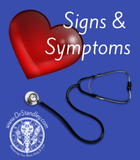If you get a high-quality multivitamin, it should contain Vitamin C with bioflavonoids. The bioflavonoids and Vitamin C will work together, just like they do in nature. You may find Vitamin C often appear on labels as calcium ascorbate and/or magnesium ascorbate. The reason why is the ascorbate acid is buffered to promote digestive comfort. Not everyone can handle the same Vitamin C. Deficiencies may include lowered resistance to infections, hemorrhage, anemia, scurvy, joint tenderness, and susceptibility to dental caries, pyorrhea and bleeding gums. Vitamin C is soluble in water and is easily destroyed by oxidation and heat will hasten the process. It also gets lost in cooking, particularly if water in which the food was cooked is discarded. Vitamin C can also be easily lost if cooked in iron or copper cookware. Frozen foods lose very little of their Vitamin C. It can be stored in the body to a limited extent, unless of course you are a smoker, then it cannot be stored at all and must be supplemented in the diet.
It is an antioxidant that supports the intracellular cement in your joints, skin, dentin, collagen production, cartilage, tissues, bones, and blood vessels. Supports the body in infections, viruses and bacterial toxins and helps to maintain the immune system. Helps the body's repair itself during wound and burn healing. Protects against cancer and aids in stressful situations with adrenaline. Extends the life of cells. It prevent scurvy and will facilitiate the absorption of iron. Helps to decrease blood cholesterol and high blood pressure while preventing atherosclerosis. It can be a natural laxative. It is used in the formation of red blood cells and lowers the incidence of blood clots in the veins. Aids in the metabolism of folic acid, tyrosine, phenylalanine. Protects the brain and spinal cord. Works synergistically with Vitamin E to have a greater effect.
None known when taken as recommended. In high doses can cause diarrhea. Large amounts of Vitamin C may cause a false negative reading when blood in the stool is being tested.
POTENTIAL INTERACTION: Make sure that you check with your doctor if you are taking aspirin, analgesics, antidepressants, anticoagulents, oral contraceptives, or steroids because they may reduce levels of Vitamin C in the body. Alcohol can also reduce Vitamin C in the body. If you are taking diabetic medications and sulfa drugs, they may not be as effective when taken with Vitamin C. Pregnant women should always check with their doctor before taking Vitamin C. If a infant becomes dependent on a Vitamin C supplement, they have a potential to develop scurvy.
Alfalfa sprouts, apples, asparagus, avocados, bee pollen, beets, beet greens, berries, broccoli, brussel sprouts, burdock root, cabbage, cantaloupe, cauliflower, celery, cherries, chickweed, citrus fruits, collards, cucumber, currants, garlic, grapefruit (pink), leafy greens, green vegetables, kale, kelp, kiwi, lemons, mangos, mustard greens, onions, oranges, papayas, parsley, peas, persimmon, pineapple, potato, radishes, raw vegetables, rose hips, spinach, spirulina, all kinds of sprouts, strawberries, sweet peppers, swiss chard, tomato, turnip greens, watercress and wheatgrass. Also fruits and their juices.
May be used daily. Always check with your physician first before taking any supplements.


































